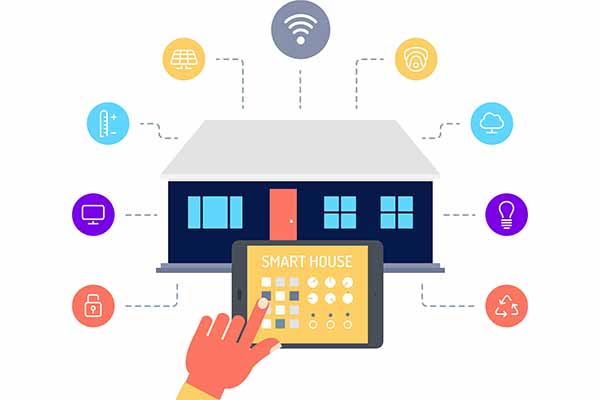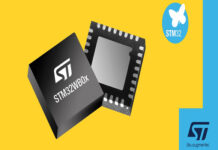Over the past few years, the Indian market has seen a growing interest in smart homes. Consumers are fascinated by technology and keen on accepting and investing in technological developments. This trend suggests a rapid increase in the number of active households by 2027. Most of these homeowners would have grown up with technology and enjoyed the convenience and benefits it brings. Even a simple task like unlocking the door has become hassle-free. Fingerprint door locks have eliminated the need for carrying keys and provide a higher level of security. Smart devices have given us the possibility to connect anything to the internet.
What is the Internet of Things (IOT)?
The “Internet of Things” refers to a network of connected devices or people that can collect and share data through the internet. A home is considered smart when you can have access to it even when you are not at home, and this is exactly what the IOT helps in achieving.
How will the IOT impact smart homes?
When smart homes are linked with IOT, they create connectivity that can be accessed from anywhere at any time. You can be on vacation but still, keep an eye on your surroundings from the inside and outside.
There are several factors that have contributed to the increased interest in smart homes and IOT, including-
Comfort:
The modern-day consumer wants accessibility at a click, and smart home technology allows homeowners to do just this. One can easily modify the temperature of their room, keep an eye on their property, or switch off the lights in a room via a phone app. It has simplified and automated many operations across the household, and allows overall control to remain in your hands. Safety and accessibility, therefore, remain key.
Durability:
Consumers can have some concerns while investing in smart products due to a lack of understanding of usage or maintenance of smart gadgets. Since IOT functions through the internet, there can be doubts regarding data protection and its use in the future. However, new-age companies are making them simple to use and long-lasting.
Control and Monitoring:
The IOT considerably enhances your ability to manage and keep an eye on activities occurring within your premises. The IOT program collects data on how your household operates and sends alerts when it detects any suspicious activity.
Cost and Energy Saving:
You can simply optimize the use of each smart device and change the settings for your smart home in a way that is more cost-effective and energy-efficient. One may also delegate tasks through the smart home system. If no one is home, the system will turn off any gadgets that are not in use in order to save energy.
About the author:

Abhishek Aggarwal is the President-Strategy at Ozone Overseas.















